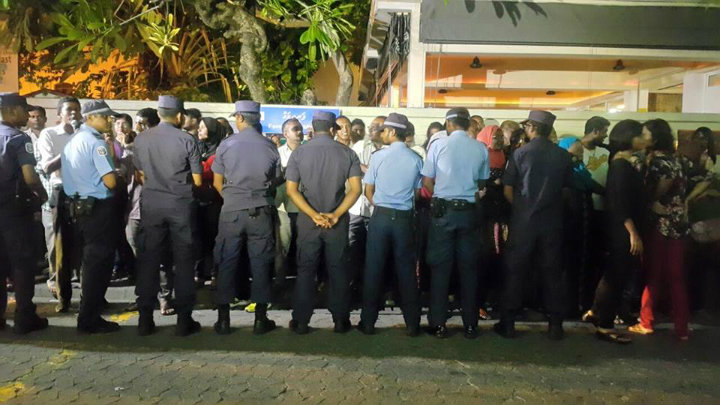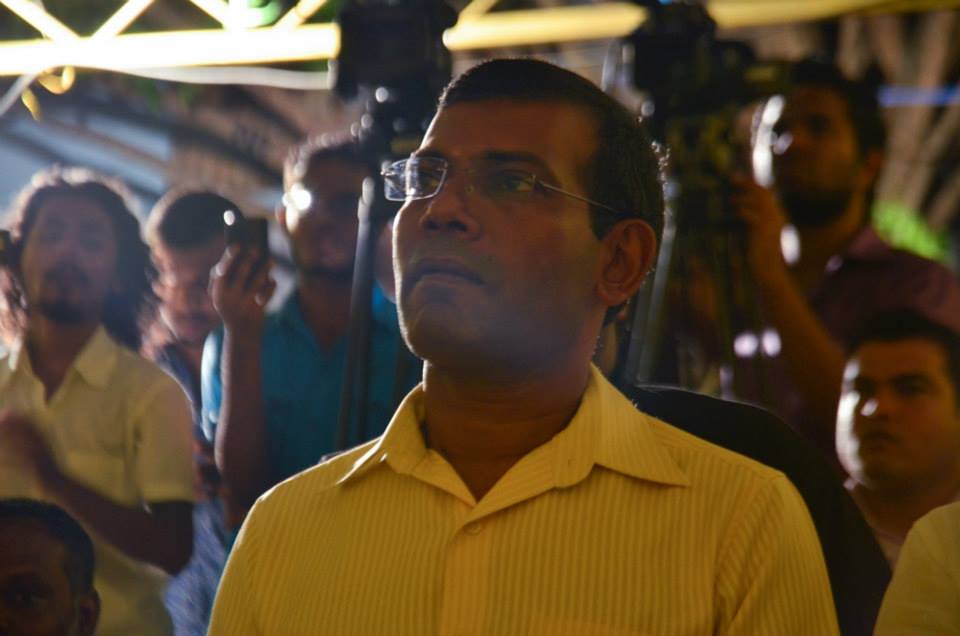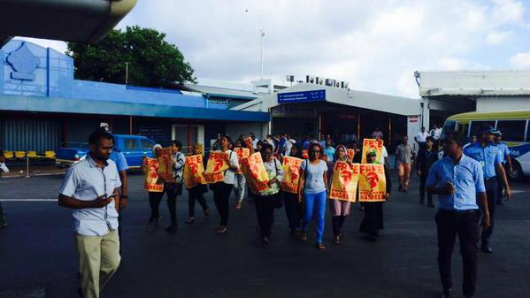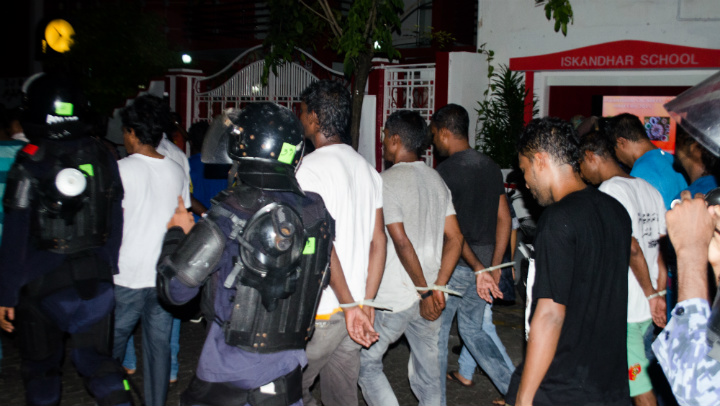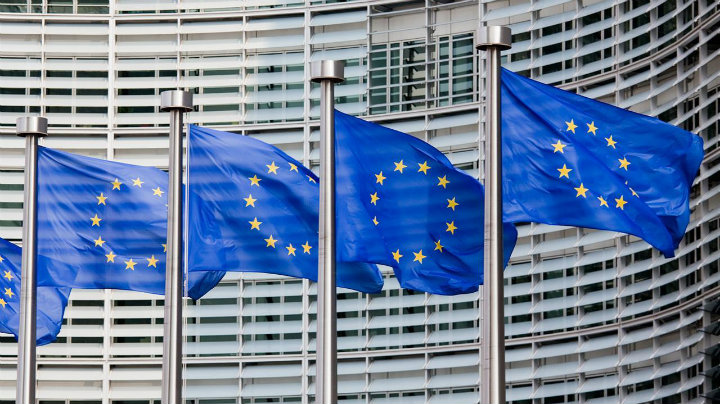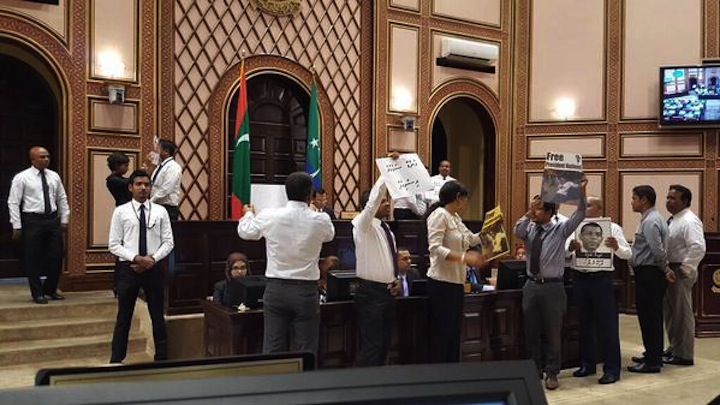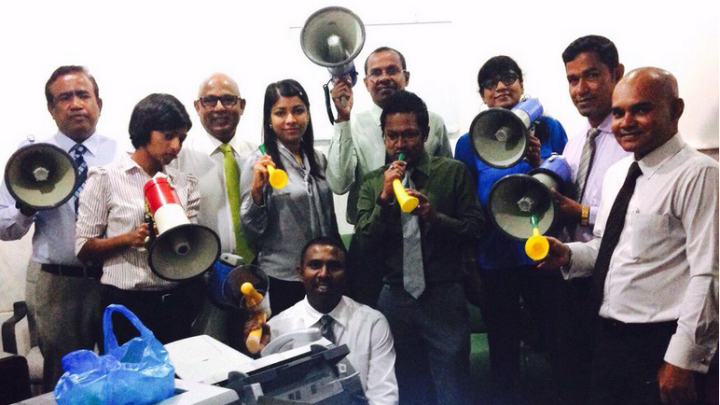Three men were arrested from an opposition protest on Wednesday night when they reportedly refused police orders to step out of the street and on to the pavement.
Opposition MP Rozaina Adam told Minivan News that police officers pushed some hundred protesters on to the pavements at the main junction of Chaandhanee and Fareedhee Magu. Three protesters were arrested for disobedience to order.
“They are cracking down on our right to assembly and free speech. This is how rights are taken away in dictatorships, step by step,” she said.
The allied opposition parties, the Maldivian Democratic Party (MDP), the Adhaalath Party and the Jumhoree Party (JP), are protesting over the imprisonment of ex-president Mohamed Nasheed and the ex-defence minister Mohamed Nazim, and the takeover of JP Leader Gasim Ibrahim’s businesses.
A police spokesperson said the protesters had been told to stay on the pavements to avoid blocking traffic. Protesters were very cooperative, he said.
The official declined to comment on the opposition’s claims of narrowing rights. “But we never do anything against the law.”
The three men who were arrested remain in police custody.
Since a 20,000-strong march on May 1, the police have banned the use of four-wheeled vehicles in protests. In April, police banned the use of sound systems beyond 11pm and protesting beyond 12am.
MP Rozaina said the protest had ended at 11pm when the police ordered sound systems to be shut off.
MDP Vice President Mohamed Shifaz said the police had prevented supporters from holding a demonstration on Monday as well.
The opposition had protested peacefully every day from February 10 to May 1.
Violent clashes broke out on May Day when protesters attempted to enter the city’s restricted Republic Square. Some 193 people and the three leaders of the allied opposition parties were arrested. Protests have slowed since then to just three or two days a week.
The opposition has opened a campaign hall for its nightly activities and have announced a third mass protest on June 12.
In a speech this morning, President Abdulla Yameen welcomed “non-stop protests” but said the government will not tolerate attacks on police officers.
“To politicians, I say, we will not allow you to violate police officers, torch property and disrupt the peace. Political activities should be carried out, but it should stay within the limits,” he said.
Two police officers were beaten on May Day. Some 14 people were arrested. At least three of the suspects have told lawyers police severely beat them and threatened to kill them.
The president also condemned calls for a tourism boycott.
“People who call for boycotting tourism in political turmoil are enemies of the country,” he said.
Photo: social media
